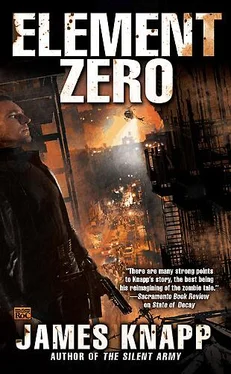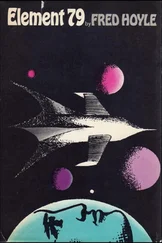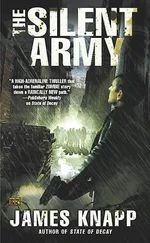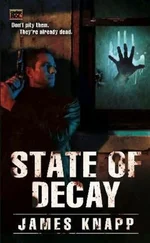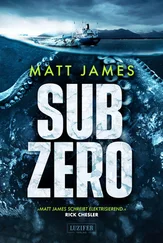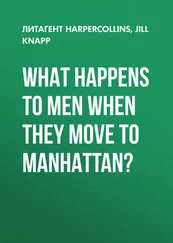“Subjects secured,” a voice said over the intercom.
“Roger that,” another voice answered. “Implanting virus.”
“Transfer successful.”
A big screen lit up along the far wall down where the soldiers were, and a countdown started to tick off from twenty-one seconds.
“It takes twenty-one seconds for the virus to initialize and spread,” Osterhagen said.
“That’s kind of a long time,” Penny said. It didn’t sound like very long to me, but the general nodded.
“Too long. We need to get it down.”
The timer fell to zero, and then, just like that, all four of the test subjects went facedown against the metal posts they were chained to. None of them moved.
“Test complete,” a voice said.
“That’s it?” I asked.
“That’s it,” the general said. “The engineering behind this was massive, even with Heinlein’s help. But at the end of the day, yes, that’s it. The virus was implanted in the single subject by accessing its communication node, then spread to the others on its network, causing full shutdown of all four subjects.”
I looked down through the window as soldiers approached the bodies. I saw one of them stick a big needle into the back of the first subject’s neck, and check something on a small screen.
“Complete deanimation in all subjects,” a voice said. “Test successful.”
“If we didn’t keep them isolated,” Osterhagen said, “that would have shut every last one of them down.”
“That’s …good, isn’t it?” I asked.
“Twenty seconds is still too long,” he said. “When Fawkes makes his move, he’ll have a command spoke in place to each one of them. When there’s this big an intrusion into the systems of any one of them, he’ll get an alert for sure. Twenty seconds is more than long enough for him to cut the source of the virus off the network.”
“How long has this been ready?” Penny asked.
“We got a confirmed reaction four months ago. In another four, if we get four, we’ll have the init time down low enough that even Fawkes won’t be able to react fast enough.”
“That’s …good, then, isn’t it?” I asked again. It sounded like he was saying all he had to do was put the virus in any one of the carriers and he’d wipe out Fawkes’s whole army. He only needed one, and he had hundreds of them.
“No,” he said. “That’s what you need to tell Ai.”
He looked back down at the bodies lying on the floor, their necks bent at sharp angles as they hung from the chains.
“What I said before about the map,” he said, “I believed it too, just like you.”
“Believed what?” Penny asked.
“That at some point we’d find some keystone, some strategy that would erase the event from the system and light up the void at its center. I believed that, but now we’re coming down to the wire, and I don’t know anymore.”
“Changes in the database don’t happen overnight,” Penny said. “You know that. Give it time for new entries to have some kind of impact.”
“We can agree, I think,” Osterhagen said, “that there are only three ways to stop these things. The first is to issue the shutdown code from the command source, but since that’s Fawkes and he assigned that code, it’s a safe bet that’s not going to happen. The second is to use this virus, or something like it, to infect their network. The third is to slug it out with them on the ground. Can we agree on that?”
“Sure,” Penny said.
“Until four months ago, option three was the only one we had…. But four months ago, the second option became a reality. That’s four months that it’s existed at least in some form. That’s long enough for new entries to impact the database.”
I got it then, finally. Penny got it too.
“It didn’t change,” I said. “Over the four months, it didn’t change.”
“It changed,” Osterhagen said. “The creation of the virus did alter the outcome. Several chains of possibility fell off, while others disappeared completely.”
On a screen beside him, he brought up two views of the map, and at first glance, the nebulae pictured in both looked identical. He started zooming in to different areas, and Penny watched with a lot of interest as he started explaining what exactly changed and why, and what he thought it meant. As usual, when he did this, the two of them kind of shut me out. But to be fair, I usually didn’t follow them.
I got everything I needed from what he said and the way the colors coursed behind that thin white halo when he said it. The problem wasn’t that the change was smaller than they’d hoped for or expected.
The problem was that things hadn’t gotten better; they’d gotten worse.
Calliope Flax—Pyt-Yahk District, Bullrich Heights
If Bullrich was the ass end of the city, Pyt-Yahk District was the ass end of Bullrich. No one in their right mind who wasn’t stuck there ever went into the Pit, not even the cops. No one gave a shit about that place or anyone in it.
I took my bike down a back alley, over frozen trash and slush. It was cold, but I smelled smoke, and when wind blew down the street, a pocket of warm air hit me. A group of them were holed up somewhere close.
The alley came out in an open lot where fires burned in metal drums. The dregs sat in groups, hunkered down in layers of old clothes, coats, and blankets. Bloodshot eyes and hairy faces looked up and watched me pass. They were off the grid—no IDs, no homes, no names, nothing. As far as the rest of the world cared, they didn’t exist. They were nobodies. It’s why Fawkes picked them.
I cruised through the drum fires and slapped-up shelters. Over the wind, in the back of my head the static changed. Part of it got a little louder. At least one of them was around somewhere.
The GPS was useless that deep inside. The streets were overrun. Shacks were set up, sheet metal and plastic tied with wire. Side streets were blocked off with plywood and chain-link fence. I switched to the locator. As long as Yavlinski kept his phone on, I’d find him.
Hey, Wachalowski. He usually wanted a tip when I found one, but he didn’t answer.
Nico, pick up. Nothing.
Asshole.
I didn’t work for him, but I kept him in the loop even though it was behind Stillwell’s back. If it wasn’t for Nico, I’d probably be holed up with those hobos right now. Five years back, he jumped into a real fire to save my ass. A year back, he did it again. If he told me to drag every last one of those dregs out of there and drop them on his doorstep, I’d do it—for free.
My front tire nicked an empty can and spun it into the leg of an old trash bin as I turned down a narrow alley. The signal source was from down there. I ducked a rusted fire escape and came out the other side into another lot that they’d turned into a back-alley shelter. A bunch of bums looked over when I brought the bike in. The engine backfired when I cut it, and the pop put them on edge. Yavlinski was somewhere in there.
Yavlinski, I’m here , I texted. Where are you?
He stepped out of the crowd from over near a wall covered in spray paint, wrapped in that huge coat of his. He was older, maybe Nico’s age, but there were more miles on him. There were three other guys with him, all scrawny with bad teeth.
“About time,” he said.
“You got three?” I asked. One of the three guys opened his mouth, but Yavlinski cut him off.
“Four,” he said.
“Let’s see them.”
“Let’s see the stuff first,” the third bum said. Yavlinski reached into his coat and pulled out a plastic bag. He held it up so the guy could see the Zombie Maker. When he reached for it, I snatched it away and held it in my fist.
Читать дальше
